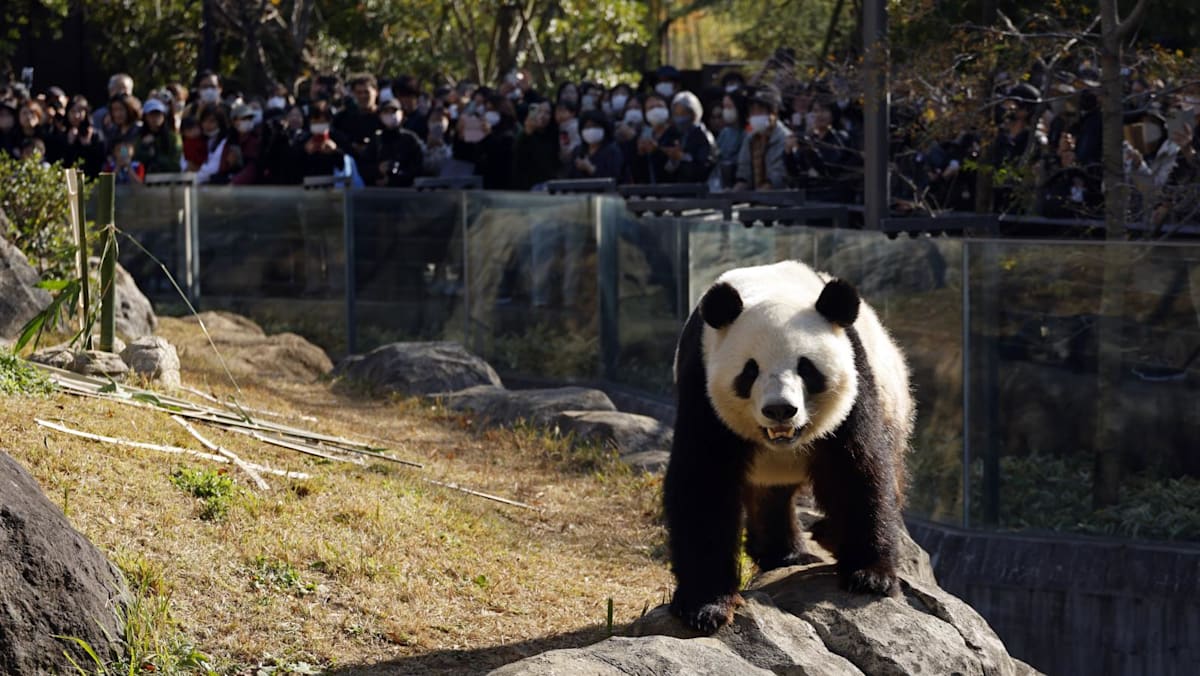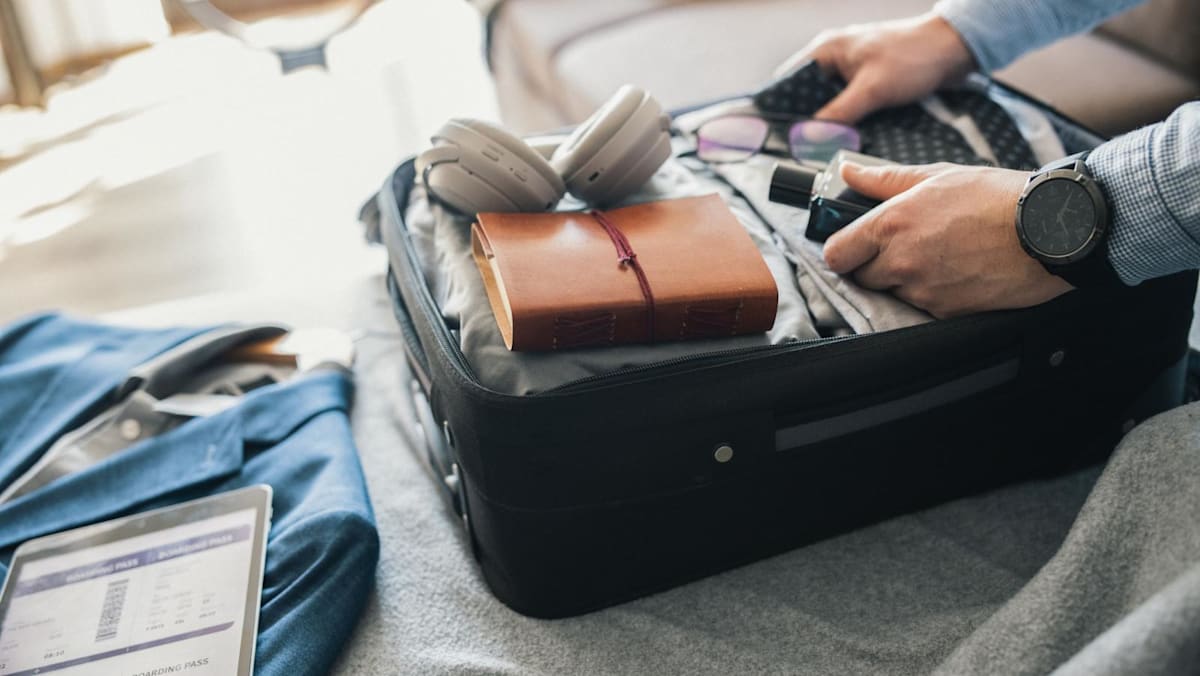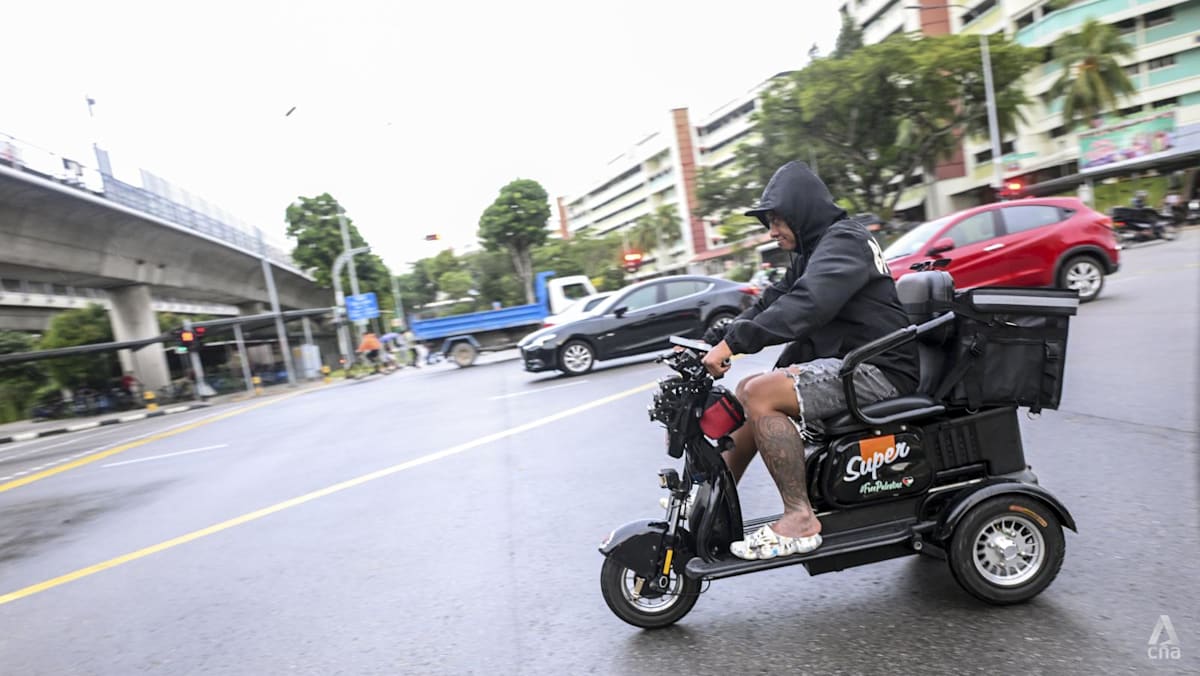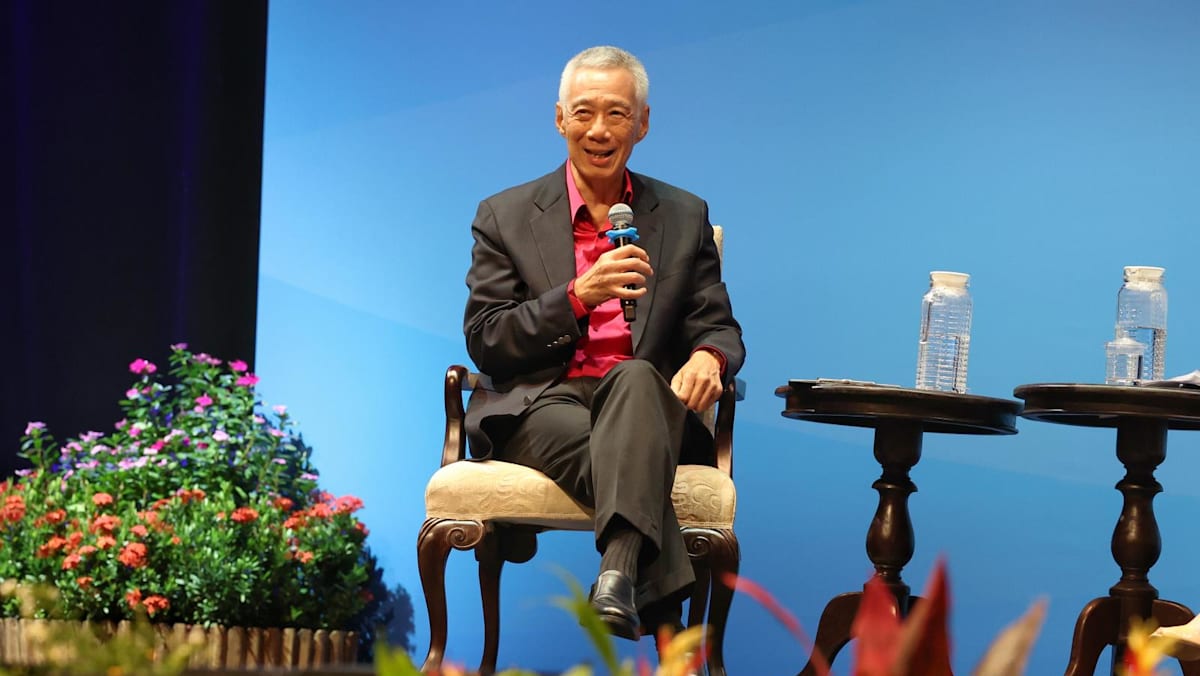Imagine checking into a sprawling clifftop mansion in Bali that overlooks the Indian Ocean. Or a triplex penthouse in Manhattan, with the city lights strung like pearls around you. Perhaps a storied, Renaissance-era chateau in the Loire Valley is more your vibe. Then imagine not having to pay a nightly rate for these experiences.
Well, for a handful of the world’s elite, this isn’t a figment of their imagination; it’s a reality for members of luxury travel club ThirdHome.
Welcome to the sharing economy for the top one per cent. ThirdHome is essentially a holiday home swap for the extremely affluent. You could think of it as timeshare-meets-Airbnb, except that no money changes hands between homeowners – they only pay an annual subscription (US$295 or S$377) and a one-time booking fee (US$495 to US$1,995, depending on the property tier and season), which covers admin and operation costs.
In the West – especially in the US – home-swapping is a well-established model, allowing homeowners to exchange time in their properties with like-minded travellers, without the transactional feel of renting.
In Asia, however, the idea is still nascent – perhaps because property ownership here has historically been viewed as a symbol of privacy and status, not something to be shared willy-nilly, at least not with complete strangers.
But this narrative is changing, as the ranks of Asia’s wealthy soar, luxury branded residences (Aman, Four Seasons, Mandarin Oriental, Rosewood, St. Regis etc) witness explosive growth in the region, and the luxury travel market booms.
 Giles Adams, ThirdHome's head of strategy and operations. (Photo ThirdHome)
Giles Adams, ThirdHome's head of strategy and operations. (Photo ThirdHome)
“Southeast Asia offers a rare convergence of opportunity: A surge in regional high-net-worth individuals, growing global interest in the region’s rich cultural and natural assets, and a wave of new, high-spec residential developments,” said Giles Adams, head of strategy and operations at ThirdHome, which now has its sights set firmly on Southeast Asia. Adams added that ThirdHome currently has around 20 Singaporean members.
Founded in 2010, the privately-owned company has become the world’s largest private home exchange network, with 20,000 vacation homes spread across 100 countries. Its portfolio includes castles in the French countryside, sleek urban penthouses, private yachts and villas worth anywhere from US$500,000 to US$50 million.
The inventory boasts US$40 billion worth of real estate, Adams shared, and the company has now expanded to 68 staff members across offices in the US (Nashville, Tennessee), Europe (Marbella, Spain) and Australia (the Gold Coast, Queensland).
LUXURY HOME-SWAPPING: A CLUB, NOT A MARKETPLACE
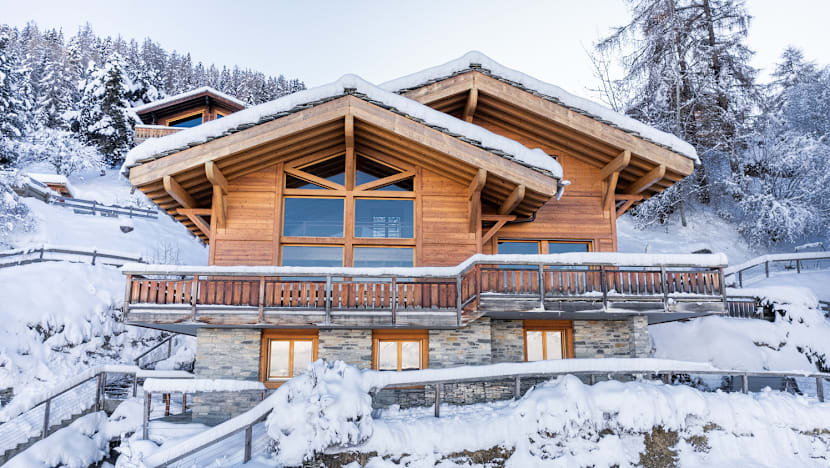 Chalet Les Roches in Nendaz, Switzerland. (Photo: ThirdHome)
Chalet Les Roches in Nendaz, Switzerland. (Photo: ThirdHome)
Unlike platforms such as Airbnb or Vrbo, ThirdHome’s model is deliberately non-commercial. “ThirdHome is an exclusive travel club for luxury second-homeowners that allows them to exchange unused time in their [secondary, tertiary and beyond] properties for stays in other high-end homes around the world, all without the hassle of renting or paying nightly rates,” Adams explained.
Instead of cash transactions, the platform uses a credit system known as Keys. Members must list their homes for at least two weeks in a year – not necessarily consecutively – and earn Keys that can be used to book stays in other members’ properties. Immediate family members can use the membership as well.
The annual membership fee of US$295 is waived in the first year if members list their homes for two weeks. On average, members pay about US$900 a week – which, rather unfairly for the rest of the people who aren’t invited to be members, is a fraction of the cost of comparable stays. Additional services like private chefs or concierge assistants are arranged separately between hosts and guests.
“Effectively, our thinking is that if you own a second home, you should not have to pay rent to stay in properties when you travel, and membership to the club delivers that benefit,” Adams said.
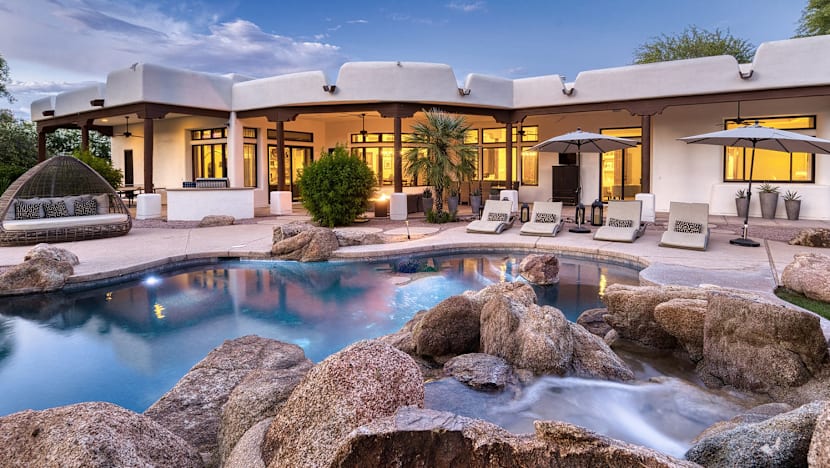 Scottsdale Estate in Paradise Valley, Arizona, USA. (Photo: ThirdHome)
Scottsdale Estate in Paradise Valley, Arizona, USA. (Photo: ThirdHome)
Membership isn’t open to just anyone with a spare set of keys, however. ThirdHome is fiercely selective, requiring that all homes meet a minimum market value of US$500,000, with an average of US$2.4 million.
Properties are also vetted for prime locations, premium furnishings, and lifestyle appeal. “Every home accepted into the ThirdHome portfolio undergoes a strict vetting process that evaluates location, architectural design, interior quality, and amenities,” Adams noted.
ThirdHome’s property tier system is based on factors like home value, location, and seasonality, with higher-tier properties requiring more Keys to book. This ensures fair value exchanges between, say, a Bali villa and a Manhattan penthouse.
What if you don’t want just any “ordinary” member on your property? Well, the ThirdHome team has thought of that, too. Enter ThirdHome Reserve, an even more exclusive collection of homes. Membership is by invitation only, and residences are typically valued at US$5 million or more, with an average of US$11 million.
Many of them come with private staff and ultra-bespoke amenities. Bookings here are handled personally – not online – and exchange Keys based on the home’s rental value (pegged to the peak season) and exclusivity.
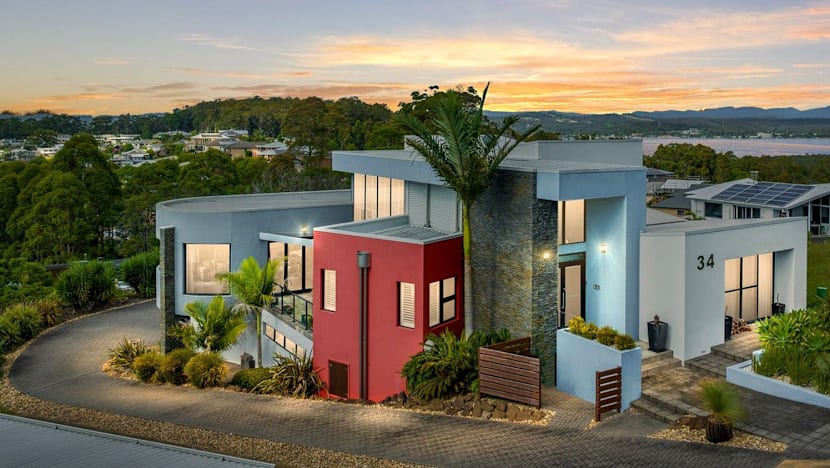 Seabreeze Sanctuary in Long Beach, Australia. (Photo: ThirdHome)
Seabreeze Sanctuary in Long Beach, Australia. (Photo: ThirdHome)
That being said, Adams explained that ThirdHome maintains a deliberate focus on community and trust. “Unlike renting, ThirdHome is a closed community of fellow luxury homeowners. Everyone has ‘skin in the game’, so there’s a shared respect for the homes involved. It’s all about trust, reciprocity, and a lifestyle-driven approach to travel that maintains the privacy and exclusivity these homeowners value.”
Members can also join curated events or small-group travel experiences under the ThirdHome Adventures banner.
“Today’s luxury traveller wants both the solitude of a private villa and the sense of connection with a like-minded community,” Adams said. “ThirdHome delivers this by offering access to completely private, fully appointed residences, while also cultivating a ‘club’ atmosphere that brings members together through curated experiences, events, and even small-group travel.”
ASIA’S LUXURY PROPERTY AND TRAVEL BOOM
While luxury consumer spending in Asia has declined in recent years, the region’s luxury property and travel markets have been on a meteoric rise – giving ThirdHome the impetus for regional expansion.
According to Thailand-based analysts C9 Hotelworks, branded luxury residences now account for nearly one-third (32 per cent) for new residential projects in Asia, led by marquee names like the Ritz-Carlton and Four Seasons. Meanwhile, Southeast Asia’s luxury travel market is projected to grow at an average rate of 9.8 per cent annually from 2025 to 2033, fuelled by both regional wealth and international demand.
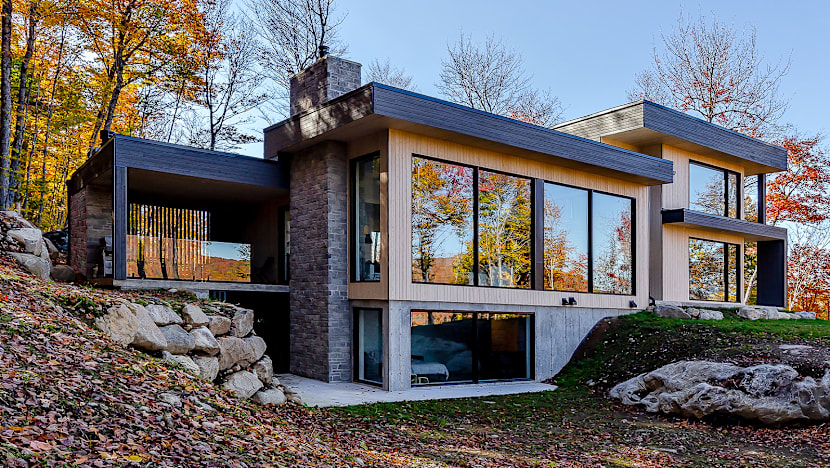 A luxury chalet in Mont Blanc, Canada. (Photo: ThirdHome)
A luxury chalet in Mont Blanc, Canada. (Photo: ThirdHome)
“We’re seeing a huge rise in luxury second-home ownership in Southeast Asia, not only among international and expat buyers but also among the rising number of highly affluent local residents,” Wade Shealey, founder and CEO of ThirdHome, said in a press statement. “ThirdHome gives them the freedom to explore the world without being tied to just one location, year after year.”
Shealey added that the company is actively seeking partnerships with developers and real estate professionals across Southeast Asia. “We want to work with those who want to differentiate their offerings and deliver long-term lifestyle value to their clients,” he noted.
DESTINATIONS THAT DOMINATE – AND WHAT’S NEXT
If traditional luxury travel was all about checking into five- or six-star hotels, the post-pandemic era has altered expectations. Privacy, flexibility and unique experiences are now at the top of many travellers’ wish lists.
Members, Adam revealed, are much more adventurous now. “When we started, our members had fixed ideas on where they wanted to go and when, but this has changed. Instead of seeing if ThirdHome has availability in a predetermined destination that they want to go to, they come to the site and look at what we have available at that time – and then the property or location dictates their next trip.”
This property-led style of travel is reshaping the luxury market. It’s no longer about ticking off a sought-after destination or landmark; it’s about living like a local – but in homes that come with infinity pools, wine cellars, private chefs, and even its own game reserve.
Where, then, are the Asian hotspots for luxury home-swapping? “Most of the homes that we currently have in the club in Southeast Asia are in Bali and Thailand,” said Adams. Not surprisingly, Thailand’s favourite holiday isles of Phuket and Koh Samui are on the list. But only about one per cent of ThirdHome’s portfolio, or roughly 200 homes, are located in the region.
“These members have largely come to us organically. However, demand considerably outstrips supply and, with the recent growth of our Australian membership base, we need more properties in these areas to satisfy the travel needs of these members and those coming from Europe and beyond.”
Beyond Bali, Phuket and Samui, ThirdHome’s radar is widening. “Vietnam is a hot destination for us. We already have a handful of super homes near Hoi An and on [the islands of] Con Dao, but we are planning on heading to the Danang area in November to see some development projects, and we may head to Phu Quoc too,” Adam shared.
Japan – particularly Niseko and other parts of Hokkaido – is another key focus. “Due to the world-class skiing facilities, we are excited to have more properties in this area,” he added. This time, it’s somewhat personal: “It’s on my bucket list to ski in Japan, so I’m particularly interested in the partnerships we’re building there.”
A MINDSET SHIFT
At its core, ThirdHome isn’t just about luxury properties; it’s a different way of thinking about travel and ownership. Why let a multimillion-dollar holiday home sit empty when it could open the doors to an equally opulent experience elsewhere?
“Not only do hosts want to make sure that their guests have the best experience in their home, but guests appreciate that it’s a privilege to be able to stay in these properties in this manner,” Adam said. “They take extra care and are extremely respectful of the home.”
Could this shift towards collaborative luxury be normalised in Asia? Given its mix of rising affluence and appetite for experiences, it could very well be. As Shealey put it, “For people who love to travel, our exclusive club just makes so much sense.”
CNA938 Rewind - ThirdHome – stay at someone’s ultra-luxurious holiday home while they enjoy yours!














